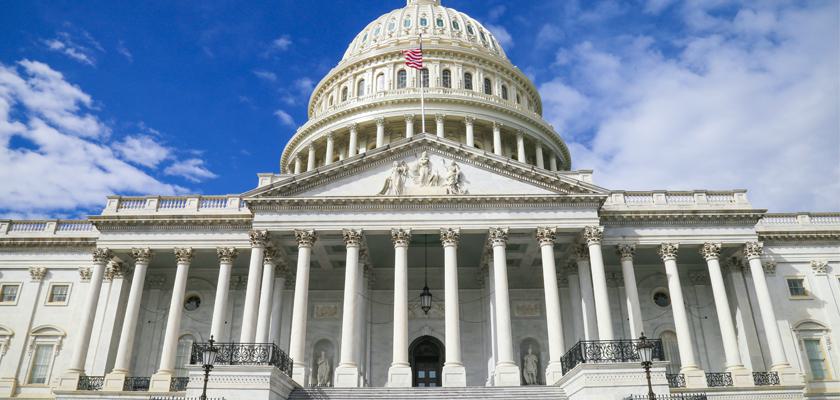U.S. Sens. Tommy Tuberville (R-Alabama) and Richard Shelby (R-Alabama) both voted against advancing the Inflation Reduction Act on Saturday, but it still cleared that hurdle due to Vice President Kamala Harris's tie-breaking vote. Tuberville announced that he had several concerns with the omnibus climate and taxation bill prior to the vote in the Senate.
The deal that was negotiated by moderate Democratic Sen. Joe Manchin (West Virginia) and Senate Majority Leader Chuck Schumer (D-New York) was moved through the budget reconciliation process meaning that the filibuster rule does not apply. Democrats, thanks to Harris, were able to pass the landmark legislation without a single Republican vote.
“Last week Senator Joe Manchin, Senator Schumer, and President Biden struck a deal on a bill that would raise over $700 billion in taxes and spend over $400 billion to expand Obamacare subsidies and finance the left’s green energy agenda,” Tuberville said in an email to constituents. “This is just another attempt to repackage President Biden’s 'Build Back Better' bill. Democrats will pass the bill using budget reconciliation, a process that only requires 50 votes to pass the Senate.”
The administration and its congressional allies have named the omnibus taxation and spending bill the Inflation Reduction Act.
“The idea that the reckless spending and massive tax hikes in this bill will lower inflation and help our economy is false,” Tuberville said. “In reality, it’s a recipe for disaster. Government spending is what drove up prices in the first place, and combining that with more taxes will make the problem even worse.
“Not long ago, President Biden promised not to raise taxes on anyone earning $400,000 or less. Unfortunately, this bill breaks that promise by raising taxes on millions of hardworking Americans, manufacturers, and small businesses. Americans making less than $200,000 will see a $16.7 billion tax hike by 2023. Not to mention, those making $10,000 or less will see the largest percentage tax hike of anyone.
“The bill levies a 15 percent minimum tax on corporate book income. This tax hike will hit manufacturers hardest—making America less competitive in the global economy and eliminating at least 30,000 jobs from our economy. This plays right into China’s hands. We should be increasing domestic production, not encouraging businesses to go offshore by increasing their taxes.”
The Biden administration has set a goal of forcing Americans to switch from driving internal combustion engine-powered motor vehicles to new battery-powered electric vehicles. This legislation includes subsidies for the electric car segment and more taxes on the fossil fuel industry.
“Supporters will tout the bill’s electric vehicle subsidies as a way to help Americans buy electric vehicles,” Tuberville wrote. “However, these subsidies don’t begin to touch the $60,000+ price tag of most electric cars. Most Americans can’t afford a new car that expensive in this economy, even with the subsidy. What’s more, instead of investing in unleashing American energy, this bill levies new taxes on oil and gas that will drive up the cost of gas at the pump.”
The bill also gives the IRS much greater resources to pursue Americans who are underreporting their taxes.
“The more this bill is analyzed by impartial experts, the more we can see Democrats are trying to sell the American people a bill of goods,” said Sen. Mike Crapo (R-Idaho) who is the Ranking Republican on the Senate Finance Committee. “Non-partisan analysts are confirming this bill raises taxes on the middle class, raises taxes on manufacturers and produces no meaningful deficit reduction when gimmicks are removed and the full cost is accounted for.”
Tuberville said he introduced 50 amendments to the bill in an attempt to make it better. He said his amendments would focus on “cutting taxes, slashing regulations, cracking down on China, and keeping Americans safe by supporting our law enforcement and securing our borders.”
Numerous amendments to the bill by both Republicans and Sen. Bernie Sanders (I-Vermont) were rejected by the Senate.
President Joe. Biden (D) supports this legislation, and it is expected to pass the House of Representatives.
“The Inflation Reduction Act will help Americans save money on prescription drugs, health premiums, and much more,” Biden said before the legislation passed the Senate. “It will make our tax system more fair by making corporations pay a minimum tax. It will not raise taxes on those making less than $400,000, and it will reduce the deficit. It also makes the largest investment in history in combatting climate change and increasing energy security, creating jobs here in the US and saving people money on their energy costs. I look forward to the Senate taking up this legislation and passing it as soon as possible.”
There are growing concerns by Democrats in Washington that they could lose control of at least one House of Congress in the Nov. 8 general election and so they are hastily working towards passing as much of their agenda as possible affecting as many years as possible going forward ahead of the August recess since much of Sept. and Oct. will be spent on the campaign trail.
To connect with the author of this story, or to comment, email brandon.moseley@1819News.com.
Don’t miss out! Subscribe to our newsletter and get our top stories every weekday morning.










